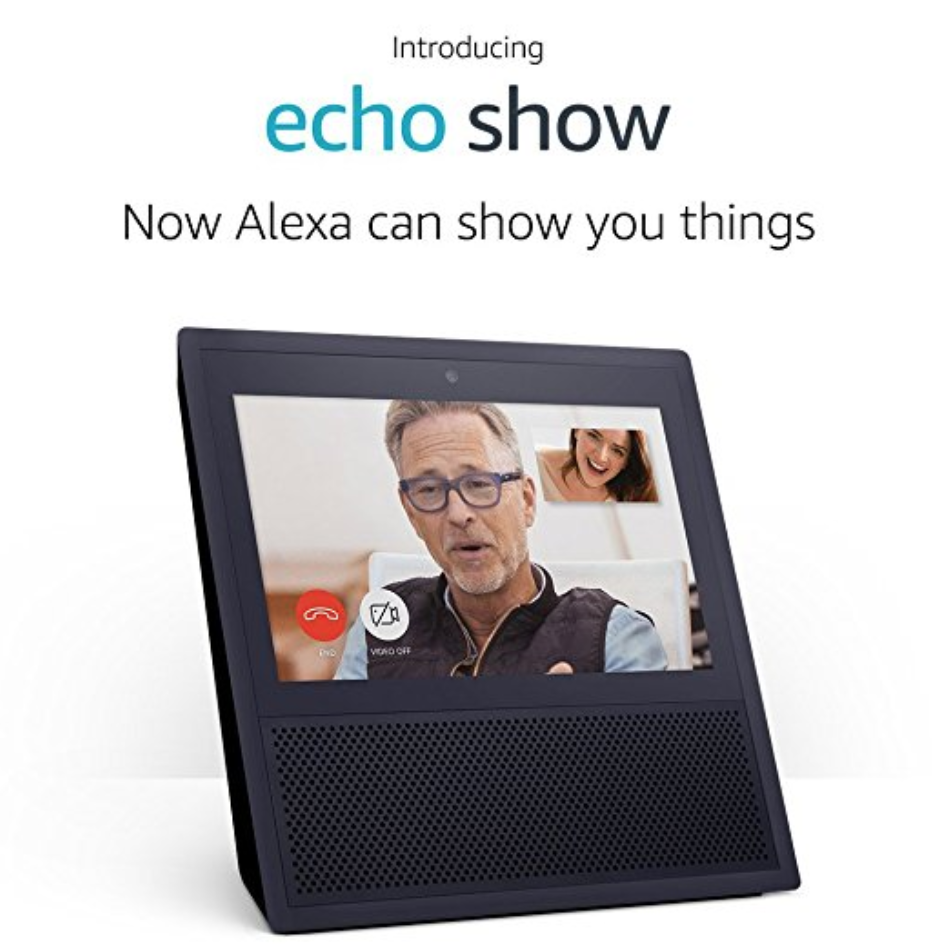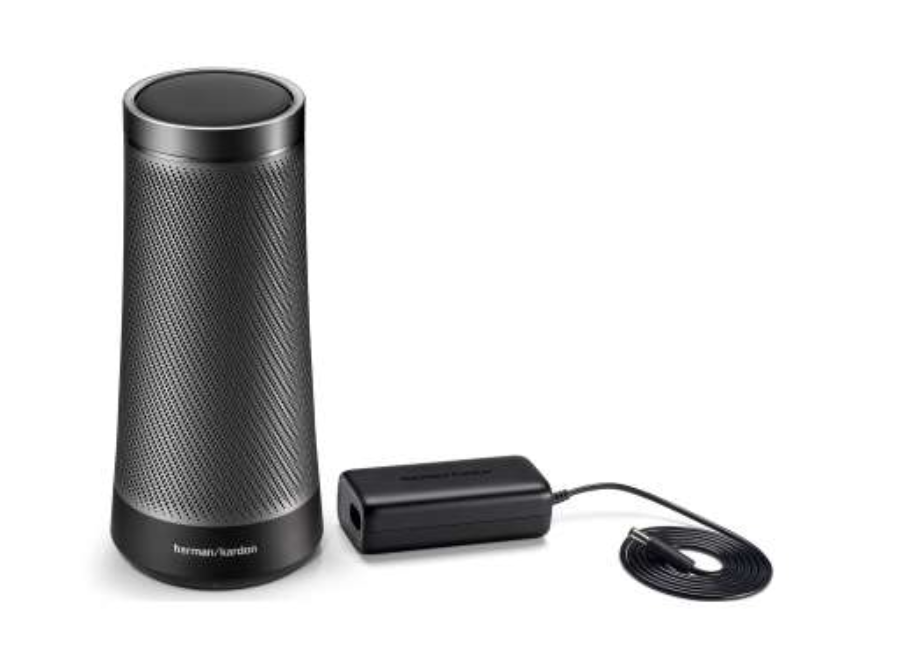Alexa vs Google Home vs Cortana: The battle to reach every user intensifies
Robin Christopherson | 20 Nov 2017There's been an explosion of Echos! We’re not talking the sort of effect that we’d get if Captain Caveman went wild in his mountain dwelling, we’re talking about an absolute explosion of Amazon Echo models in recent weeks. From a new incarnation of the big black column to the tiniest of cute (and very smart) bedside clocks, there’s something for every ear, every location and every budget.
The cute clock that is the soon-to-be-released Echo Spot is probably my favourite - here’s a sneak peak courtesy of the nice people at the Verge.
And of course the arms-race that is ambient computing contains several other horses - to horribly mix metaphors (and split infinitives). The Cortana-driven Invoke speaker is also in the running and, at the time of Amazon’s Echo announcements, you can’t have missed the simultaneous release of a similarly large range of Google Home speakers.
Last out of the gate, due out early next year, will be Apple’s HomePod.
Ambient computing is about to change everything
I’ve discussed voice assistants in several recent posts and shown how simply speaking to the air and getting useful information, being entertained and even performing sophisticated tasks is the next significant chapter in computing.
But how well are these new devices keeping up with inclusive design?
Again, in many recent posts (you really should follow that link above), I’ve explored the imperative that is inclusive design. For anything to be fit for purpose in this rapidly changing world where most people on mobiles are temporarily impaired by extreme environments on a daily basis, and a proliferation of platforms means that your content and functionality needs to be able to morph to fit any number of devices and use-cases, inclusive design is the only real way of ensuring that you’re reaching the broadest possible audience and future-proofing your projects going forward.
Yes, I am talking accessibility here but, as I’ve said so many times before, accessibility is now for everyone so let’s give it a new name for a new reality.
Anyone who has experienced ambient computing knows it is here to stay. It represents an entirely new use-case (or whole range of use-cases) and accessibility will play its part in weeding the winners from the also-rans.
Showing the way with VoiceView
 These smart speakers will only truly be inclusive when everyone’s needs are taken into account. Just as we have the excellent ‘type to Siri’ in iOS11 (thus making the virtual assistant available to those without speech or for anyone who finds themselves in a noisy environment), the ability to review a text version of everything that an Echo speaks out within the Alexa app (or on the screen of those models such as the Echo Show) makes the A-lady accessible to people without hearing.
These smart speakers will only truly be inclusive when everyone’s needs are taken into account. Just as we have the excellent ‘type to Siri’ in iOS11 (thus making the virtual assistant available to those without speech or for anyone who finds themselves in a noisy environment), the ability to review a text version of everything that an Echo speaks out within the Alexa app (or on the screen of those models such as the Echo Show) makes the A-lady accessible to people without hearing.
The Echo Show, however, also includes a full ‘screen reader’ (software to help blind users access screen text and functions) meaning that the addition of a screen does not suddenly exclude a group of die-hard fans from a whole new range of features.
VoiceView is the name of this screenreading ability and, just like Microsoft’s excellent advancements in the built-in screenreader in Windows 10, Amazon should likewise be applauded for bringing inclusion to their latest models out-of-the-box. Here’s a full break-down of all the accessibility features found in the Echo Show.
Google’s smart speaker – accessibility home run?
We know an awful lot about the accessibility of the various Amazon Echos, but what about the Google Home? Is it a home run or a rookie batter wildly swinging at the plate. Well the jury is still out (I’ve decided to see how many metaphors I can mix and mangle in one article).
We know that Google can make accessible products (a good example is the screenreader built into Android) but we also know that they aren’t averse to releasing products without a whiff of inclusion, such as Android Wear, the version of Android that runs on smartwatches.
The good news is that the accessibility of the companion app used to set up and control your so far screenless Google Home is nicely inclusive and this represents a vital component to the overall accessibility of each solution. We also know that, whilst the Echos are chockablock with accessibility features, Amazon has some way to go before its Echo companion app, again so vital in every Echo users' experience, is truly inclusive.
As a screenreader user myself, I can attest to just how awful the Alexa app is on both iOS and Android.
There is increasing evidence that a Google Home with a screen is on the way. Will it be as accessible as the Echo Show or a strike-out like the Android watch? When it lands we’ll line up the jury, present the evidence and let them deliver their verdict. Baseball bats may or may not be involved.
Cortana and the Halo effect
 Whilst it’s natural to assume that, as Microsoft has been a long-time champion of accessibility, the new Invoke speaker with built-in virtual assistant, Cortana will be inclusive. We’ll again have to see when they fall into the hands of hundreds of eager users with a range of impairments.
Whilst it’s natural to assume that, as Microsoft has been a long-time champion of accessibility, the new Invoke speaker with built-in virtual assistant, Cortana will be inclusive. We’ll again have to see when they fall into the hands of hundreds of eager users with a range of impairments.
Microsoft has produced a huge number of truly inclusive mobile apps in recent years (not least the all-important Office suite) and so I’m confident the Cortana companion app will be accessible.
For my money, the acid test will come with the first model to include a screen. I’m rooting for a home run…



